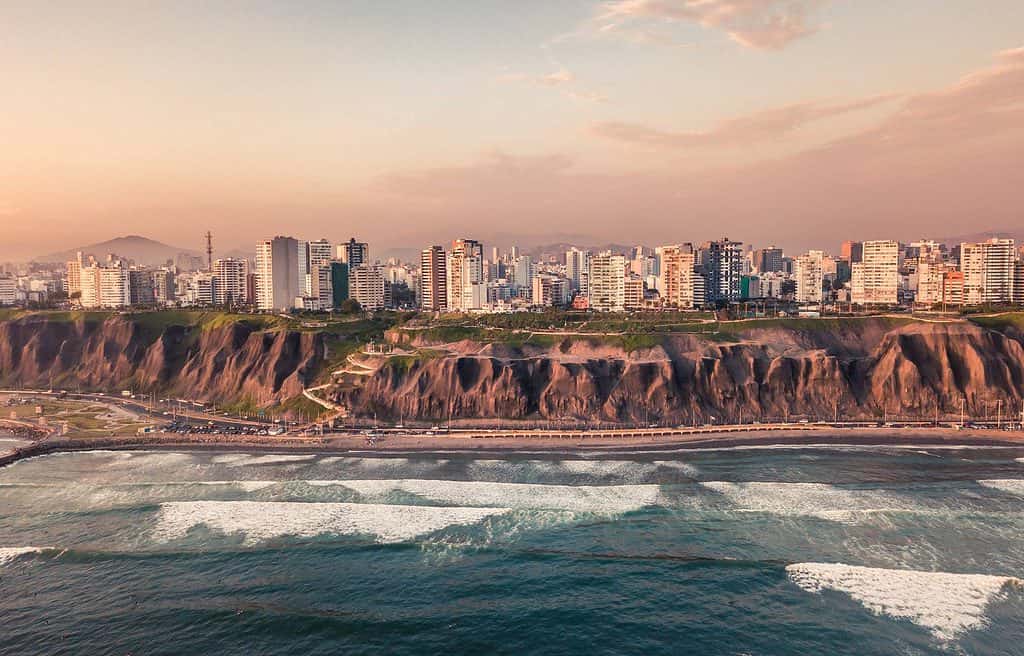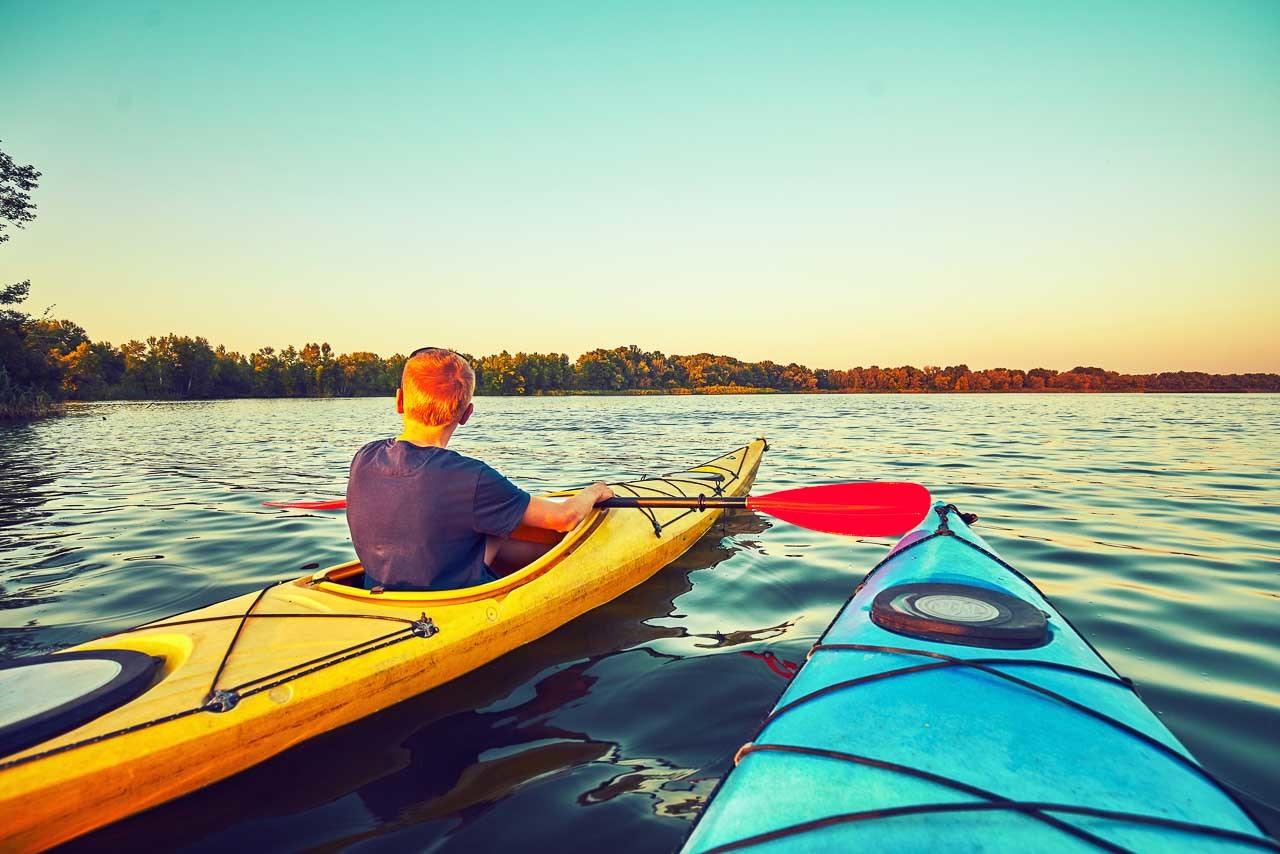How to Structure Your Peru Itinerary
13 min read
Table of Contents
Peru is a country with beautiful landscapes and cultural richness that is just waiting to be discovered.
The remarkable diversity of this South American treasure, which includes the breathtaking ruins of Machu Picchu, the vivid Amazon rainforest, and the bustling marketplaces of Cusco, leaves a lasting impression on those who visit.
However, one must set out on the adventure with a well-structured plan as a guide to properly appreciate Peru’s wonders.
This step-by-step guide will show you how to create the ideal Peru itinerary so that each day of your trip becomes an exciting chapter in your travel memoir.
Here is an overview:
Peru’s Top Travel Destinations
Every traveler can find a fascinating site in Peru, a country rich in various experiences. Home to ancient civilizations and fascinating cultures, Peru beckons visitors with an astonishing array of destinations as diverse as its rich history.
While you’re planning your Peru itinerary, check out these other places to visit besides Machu Picchu!
Here’s a list of Peru’s top travel destinations:
Lima
The vibrant city of Lima entices your taste buds with its world-renowned cuisine and fusion of history and modernity.
Lima is a city in constant movement, where even the past is not forgotten. Where there is a great variety of emotions, sensations, colors and tastes. It is as if you are invited to admire the cathedral, fly over the sea, watch a breathtaking sunset or taste an exceptional dish.
Lima is very trendy because of its vibrant culture and the people who live here, as well as every corner of Peru with which you travel; therefore, you will never have enough after a single visit.
Lima has a rich colonial charm and is also the only capital in South America with access to the sea, which is why it is also called the gastronomic capital of Latin America.

Cusco
The center of the Inca Empire, is home to lively markets, narrow streets, and the entrance to the colorful Rainbow Mountain Vinicunca.
In Cusco, a fascinating history reveals itself on every street corner. The names of the streets – such as Ataúd, Siete Culebras or Arpías – immerse you in a mystical and impressive atmosphere. Time stands still in these streets, while each corner holds its own story, and the stones remain unchanged.
Witness to the Spanish conquest, Cusco still preserves the magic of the past. This magical atmosphere attracts thousands of visitors who want to be part of this living history.
As the historic capital of Peru, Cusco is the heart of the world. An absolute must-see!
Related read: Things to do in Cusco, Peru

Machu Picchu
This ancient citadel, a UNESCO World Heritage Site, is a must-visit for history and environment lovers.
This place is located on top of a mountain surrounded by a tropical forest. This place is considered the absolute main attraction in Peru – Machu Picchu.
It is a historical sanctuary that fascinates tourists not only for its impressive architectural beauty but also for its significant historical-cultural heritage. As a result, Machu Picchu has gained worldwide recognition and admiration.
Machu Picchu is a magnificent structure, a burial place for monarchs, and a center of politics, religion, and administration. Its significance lies in the fact that all that the Inca life required was united in one place… and this happened almost on the highest point of a mountain.
Related read: 10 Things to Know Before Visiting Machu Picchu

Arequipa
Often referred to as the “White City” for its spectacular architecture, it serves as the gateway to the Colca Canyon.
Arequipa is a city shaped by volcanoes. We can see it in the walls of its streets, buildings and churches, in the impressive landscape with a fertile valley and deep canyons. Can you imagine how nice it is to relax in a thermal bath while looking at the green mountains covered with eternal snow?
Arequipa is a place to stay thanks to its unique cuisine, historical past and warm atmosphere.
Arequipa, the legendary white city full of history – here you can feel the courage under the watchful eye of the volcanoes.
Colca Canyon
The Colca Canyon in the beautiful Colca Valley is the second-largest canyon on our planet and one of the most breathtaking landscapes in Peru and all of South America.
The fertile valley has long been inhabited by pre-Inca peoples, and to this day, quinoa, potatoes and corn are grown on the steep terraces. A truly impressive spectacle awaits you at the Mirador Cruz del Condor in the depths of the Colca Canyon. Early in the morning, the kings of the Andes, the majestic condors, begin their flight over the entire valley.

Amazon Rainforest
Dive into the heart of the Amazon to explore its distinctive animals and beautiful surroundings.
The mysterious cloud forests of the Amazon hold amazing surprises that were unknown until recently.
Among its many treasures are the impressive fortress of Kuelap, the fascinating sarcophagi of Karajía and the imposing Gocta waterfall.
Imagine walking along a pleasantly cool and humid path. The sun’s rays penetrate the canopy of trees, and suddenly, a loud noise shakes the ground. It’s a breathtaking waterfall, causing a tremendous downpour!
The Amazon is not only home to cloud forests and a variety of plant and animal species such as orchids, spectacled bears and Andean rock parrots. It is also home to the beautiful miracle sylph, a species of hummingbird.

Puno
Puno is nestled at the shores of Lake Titicaca and is a destination that combines the unique culture of Uros and the tranquility of the world’s highest navigable lake.
The story goes that the origin of everything is in Puno, where Manco Capac and Mama Ocllo, the founders of the Inca dynasty, are said to have emerged from the lake.
In fact, in Puno, you become part of living history with every breath you take. The breathtaking natural landscapes, such as the beautiful Lake Titicaca, as well as the warmth of its people and the liveliness of its festivals, dances and rituals, allow you to experience this first hand. In Puno, traditions are lived, and every day is a celebration.
Located on the shores of Lake Titicaca, the highest lake in the world, Puno is the proud capital of Peruvian folklore.

Nazca Lines
Admire the mysterious geoglyphs carved into the desert at the Nazca Lines.
The mysterious Nazca Lines are located in the middle of the desert in the southern part of Peru, just outside of Nazca. This area covers about 170 square miles. To this day, these lines continue to puzzle scientists. No one seems to know why they were formed or their purpose.
The Nazca Lines consist of a multitude of geoglyphs. The lines were literally carved into the ground, and there are literally thousands of different designs depicting creatures from both nature and fantasy. These representations include animals such as spiders, Nazca Lines, hummingbirds, monkeys, lizards, as well as pelicans and even a whale. You can also find plant motifs such as trees and flowers, and geometric shapes such as wavy lines, triangles, spirals, and rectangles.

Huacachina
Embark on a journey to the natural Oasis of Huacachina and enjoy some of South America’s highest sand dunes.
The Huacachina Lagoon, located just 20 minutes from the city of Ica, is the perfect place to take a break and relax. Why not try some adventure sports?
This lagoon, also known as the “Oasis of the Americas,” offers a picturesque lake surrounded by vegetation, as well as moorings and a variety of hotels for those who want to spend more than one day in this wonderful oasis.

Peru delivers a fascinating trip into history, culture, and natural wonders with these locations and their top attractions.
The Heart of Your Itinerary for Peru

Cusco, often known as the “navel of the world” by the Incas, is a city with natural beauty, history, and culture. Consider making Cusco the core of your Peru tour itinerary.
Because you’ll spend most of your time in this city and from there, you’ll discover some of the most incredible sites, such as:
- Sacred Valley
- Machu Picchu
- Vinicunca Rainbow Mountain
- Humantay Lake
Cusco is the perfect place to begin your tour in Peru due to its central location and vivid cultural atmosphere.
Related read: How to Visit Cusco & Machu Picchu on a Budget
Sites to Build Around Your Core Peru Itinerary
Although Cusco is the core of your Peruvian itinerary, there are other places you may include that will perfectly match your main itinerary. To extend your trip, think about adding these fascinating places:
- Puno and Lake Titicaca (2-3 days)
- Amazon jungle (3 days)
- Lima (2 days)
- Arequipa and Colca Canyon (2-3 days)
To experience the full range of Peru’s options, including high-altitude cultures, lively cities, and the captivating wonders of the Amazon, add these locations to your core itinerary. By visiting these varied locations, you may make your Peruvian vacation even more extensive and fascinating.
Sample Itinerary for Your Peru Trip

The crucial thing to remember is that seeing Machu Picchu alone won’t make your trip to Peru ideal; you also need to visit it in the appropriate setting, at the right speed, and in the proper order in your itinerary.
To make our point crystal clear, let’s look at two sample itineraries.
Option A
Day 1: Arrival to Lima
Day 2: Flight to Cusco and city tour
Day 3: Sacred Valley tour and overnight in Aguas Calientes
Day 4: Machu Picchu tour (Book directly with the tour operator)
Day 5: Rainbow Mountain and flight to Lima
Day 6: Sandboarding at Huacachina Oasis
Day 7: Ballestas Islands or gastronomic tour

Option B
Day 1: Arrival to Lima
Day 2: Flight to Cusco and city tour
Day 3: Sacred Valley tour and overnight in Aguas Calientes
Day 4: Machu Picchu tour (Book directly with the tour operator)
Day 5: Flight to Iquitos and tour of the Amazon Day 1
Day 6: Tour in the Amazon Day 2
Day 7: Tour in the Amazon Day 3 and flight to Lima
As said, we can think of Cusco as the “core” of the itinerary since it is the center and the city from which you will visit most sites.
After that, you can think about an extension, such as the Amazon jungle, as mentioned in Option B. Therefore, all of your preparation will go smoothly if you keep in mind all the factors indicated in the paragraph above.
Transportation and Logistics in Peru
Making your way through Peru’s different landscapes is an important part of arranging your trip.
Peru has a variety of modes of transportation, each with special benefits:
1. Planes
Peru has numerous airports that are well-connected, making domestic planes a practical option for traveling across long distances. Booking in advance frequently results in affordable rates, and local carriers like LATAM or Avianca are suggested for security.
We highly recommend using a plane if you are short on time and have a busy schedule.
2. Buses
Buses are an inexpensive way to travel across Peru’s cities and regions. Many bus companies provide comfortable long-distance transportation, with options ranging from budget-friendly to opulent.
If you plan to travel to your different destinations by bus, then make sure to use well-known and trustworthy companies, such as Cruz del Sur.
3. Trains
Taking the train in Peru can be both picturesque and useful. For example, the Hiram Bingham and Andean Explorer trains provide opulent transportation to Machu Picchu. Remember to reserve train tickets well in advance, especially for well-known locations like Machu Picchu.
Accommodation Choices in Peru
Your trip to Peru might be significantly better by picking the proper lodging.
Here are some alternatives to think about:
Unique Accommodations
Be aware of the unique accommodations in Peru, from sleeping in glass capsules attached to a stone wall to feeding alpacas from the hot tub. All of that and much more is possible in Peru.
Hotels
Various hotels, from cheap to luxurious, are available in Peru. When choosing the ideal fit, take your comfort and budget into account. Please remember that the hotels correspond to Western standards, and you can expect a comparable quality.
Hostels
Budget travelers and those wanting a social environment should stay in hostels. Both shared dorms, and individual rooms are common in hostels.
Making reservations in advance has many benefits, including getting the cheapest prices, guaranteeing availability, and removing last-minute stress. To get the most out of your trip to Peru, plan your lodging in advance.
Dining and Culinary Experiences in Peru

A complex tapestry of flavors awaits exploration in Peru’s gastronomic world. Don’t miss the chance to try Peruvian cuisine as you travel across this diverse nation.
Lima
The nation’s capital is known for its ceviche and fusion food, making it a culinary hotspot. Try the “ceviche” at nearby restaurants like La Mar.
Ceviche is a specialty in which raw fish or seafood is prepared using citrus juice instead of heat. This method has been used for centuries.
In Peru and surrounding countries, the preparation and consumption of ceviche is almost religious. There are as many different types of ceviche as there are people who eat it.
When the juice of lime comes into contact with the fish, a chemical process similar to cooking occurs. The flesh becomes cloudy and tender.
Peruvian lime is the most important ingredient in Peruvian ceviche. In fact, Peruvians claim that it is essential for both ceviche and pisco sour because this particular variety of lime has a unique pH. However, other limes can also be used to make delicious ceviche.
Cusco
Try delicious Andean cuisine like “alpaca steak” and “llama stews.” Dine at Chicha by Gastón Acurio for a unique gastronomic experience.
Alpaca Steak
Alpaca meat was once considered a special delicacy by the people of the Andes. It is one of the healthiest and tastiest meats in the world. The meat is characterized by its leanness, tenderness, and almost sweet flavor. In addition to being high in protein, alpaca meat is low in fat and has an extremely low cholesterol content compared to other meats.
Unlike traditional slaughtered meats, alpaca meat offers numerous health benefits. Native to the Andes, alpaca meat was one of the most ancient foods of the Incas and pre-Inca cultures. It is still considered a delicacy in South America and an important part of the local diet.
Llama Stew
Llama meat is becoming more popular and a typical specialty of the country, available in many local restaurants. It is used in many regional dishes.
It is characterized by a high protein content and a low-fat content. It is also considered to be healthy and rich in nutrients, making it a good source of protein for the Andean population.
In recent years, llama meat has become increasingly popular and can even be found on the menus of exclusive restaurants.
Its taste is similar to that of lean beef, but it has a more tender consistency and more intense flavors compared to beef.
Slow cooking in a stew makes lama meat particularly tender and soft.
Often considered an exotic food, lama meat can be used to connect with local culture. It is a mind-expanding experience and a part of Andean tradition.
During the reign of the Inca Empire in the Andean region of South America, llama meat played an important role in meeting protein needs. Instead of cows or pigs, the Incas preferred the meat of llamas and alpacas as a source of protein.
Arequipa
Arequipa is well-known for “rocoto relleno” (stuffed peppers) as well as other local delicacies at picanterias like La Nueva Palomino.
Rocoto Relleno
“Rocoto” is an extremely hot paprika vegetable that is commonly used in Peru and is also known as ají. Traditionally, small pieces of rocoto are served with almost all soups and dishes, but beware – rocoto has a heat rating of 9 out of 10!
“Relleno” means “stuffed.” These spicy rocotos are thoroughly washed and then boiled in water and vinegar to soften their extreme heat.
Good to know: in tourist restaurants, the rocotos are “defused.”
Iquitos
Enjoy exotic jungle flavors like “juane” (rice tamales) and fresh river seafood here in the heart of the Amazon.
Juane
Juane, a traditional dish from the Peruvian jungle, is a delicious combination of chicken, hard-boiled eggs and rice. It is seasoned with spices such as turmeric, oregano and cumin. To lock in the flavors, these ingredients are lovingly wrapped in waxy bijao leaves and then cooked.
This savory dish is often served with manioc or boiled bananas. When you’re hungry for juanes, you can enjoy them in traditional restaurants or buy them from street vendors.
On special occasions, juanes packages play an important role in the exchange between family members and friends – even strangers! Everyone pitches in to prepare this extraordinary dish. What a great idea!
For an authentic experience, we offer different food tours where you will go to the different markets like Mercado de Surquillo in Lima or Mercado San Pedro in Cusco or where you can also participate in a cooking session with a local chef.
The country’s cuisine promises to take your taste buds on a memorable journey.
Crafting the Perfect Peru Itinerary for Your Adventure
It’s important to customize your trip to Peru in order to suit your individual interests and preferences.
Keep in mind that the best itineraries are the ones that align with your specific trip goals.
Create an experience in Peru that is as unique as you are, and allow the wonders of this fascinating nation to reveal themselves at your own speed.







